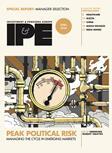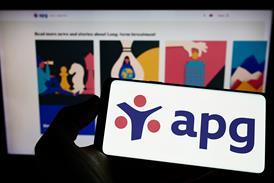EU policymakers must tackle the limited transparency around pension products’ performance and fees if they want to increase pension saving in Europe, according to Brussels-based consumer finance lobby group Better Finance.
In the fifth edition of its annual report on the “real return” of long-term savings, it said that fees and commissions were mainly to blame for low returns, although asset allocation also played a part.
The organisation argued that many pension products were “massively” underperforming capital markets and that it was time for European public authorities to address the responsibility of providers rather than just urging citizens to take responsibility for their savings.
Guillaume Prache, managing director of Better Finance, said: “If EU policymakers are at all serious about addressing the mushrooming pensions gap in Europe, urgent action is needed, starting with the speedy implementation of the ‘retail’ components of the 2015 Capital Markets Union Action Plan by finally enhancing the transparency of performance and fees of long-term and pension savings”.
Authorities should also launch a pan-European personal pension plan “that should, at the very least, not destroy the long-term purchasing power of the life-time savings of EU citizens”, he added.
The European Commission is currently consulting on its proposal for a pan-European Personal Pension Product (PEPP), with boosting pension saving one of its main goals.
In 2015 the Commission said it would ask the European Supervisory Authorities (ESAs) to look into into the transparency of long-term retail and pension products to determine net performance and fees, but Better Finance noted the authorities had yet to be tasked with this, as of August. The ESAs are currently the focus of some major reform suggestions by the Commission.
One of Better Finance’s recommendations to policymakers was for them to extend the principle of the Key Information Document (KID) to “all long-term and pension savings products, including pension funds, shares and bonds”. The KID applies to EU packaged retail and insurance-based investment products and includes important information about products in a standardised document.
PensionsEurope disapproval?
Better Finance’s analysis, as in previous years, included occupational pension funds.
Its report described their asset allocation and analysed their returns, identifying Dutch occupational pension funds as “the best performing national pension products over the last 17 years”.
The organisation’s reports have previously frustrated PensionsEurope, the umbrella trade body for national pension associations, which has found aspects of them to be of low quality and/or incorrect.
Commenting on Better Finance’s 2016 report, PensionsEurope accused the organisation of “comparing apples and pears” by presenting returns over different time periods as if they were fully comparable.
It previously also criticised Better Finance’s citation of European Commission information when stating that investment and private pension products were poor performers in the EU’s retail services market. According to PensionsEurope, the Commission was mainly referring to private personal pension plans excluding occupational pensions, while Better Finance included these in its statement.
Better Finance said its report aimed to improve transparency on the real returns of long-term and pension savings in Europe.
Better Finance’s 2017 report can be found here.









No comments yet